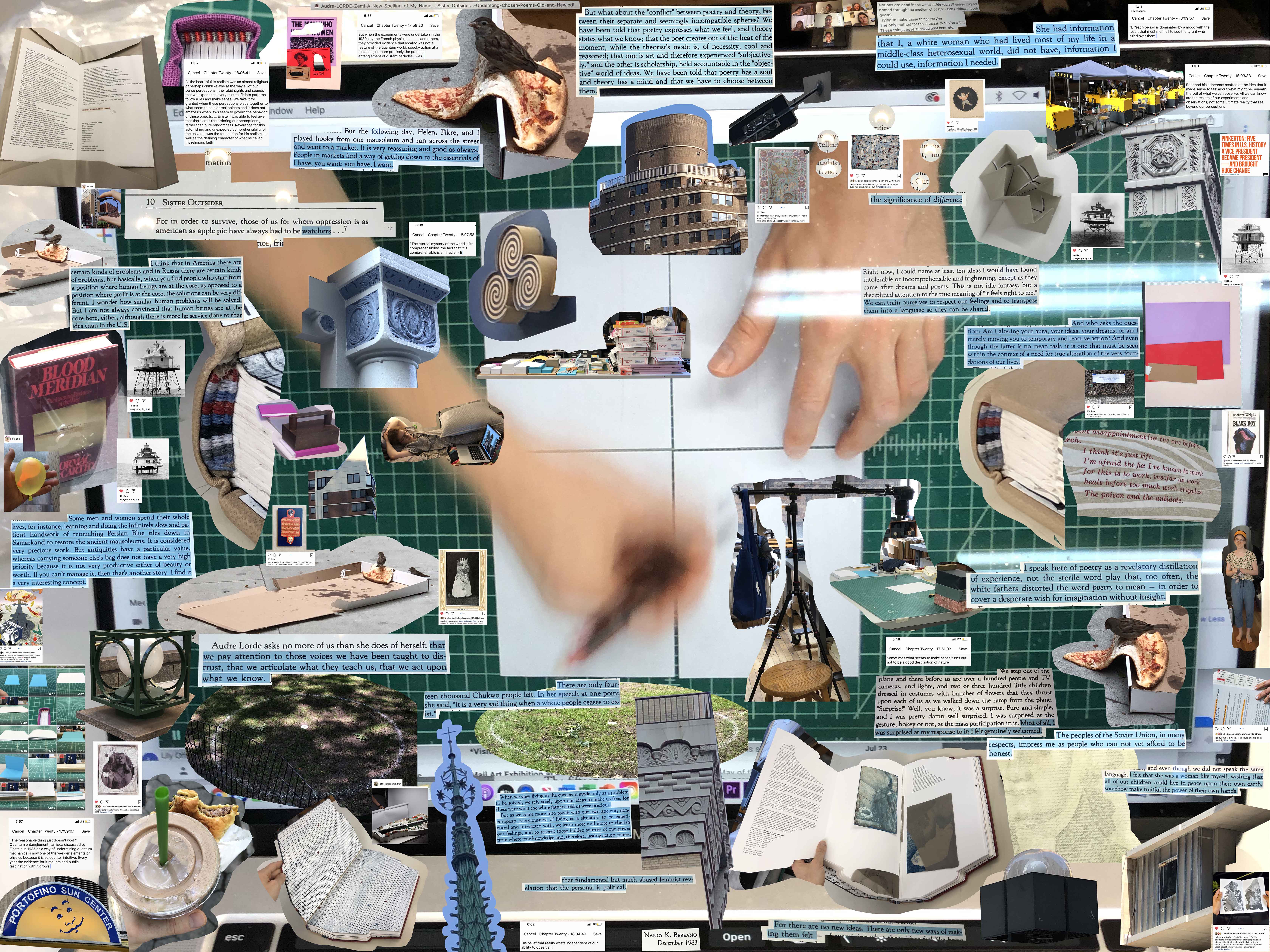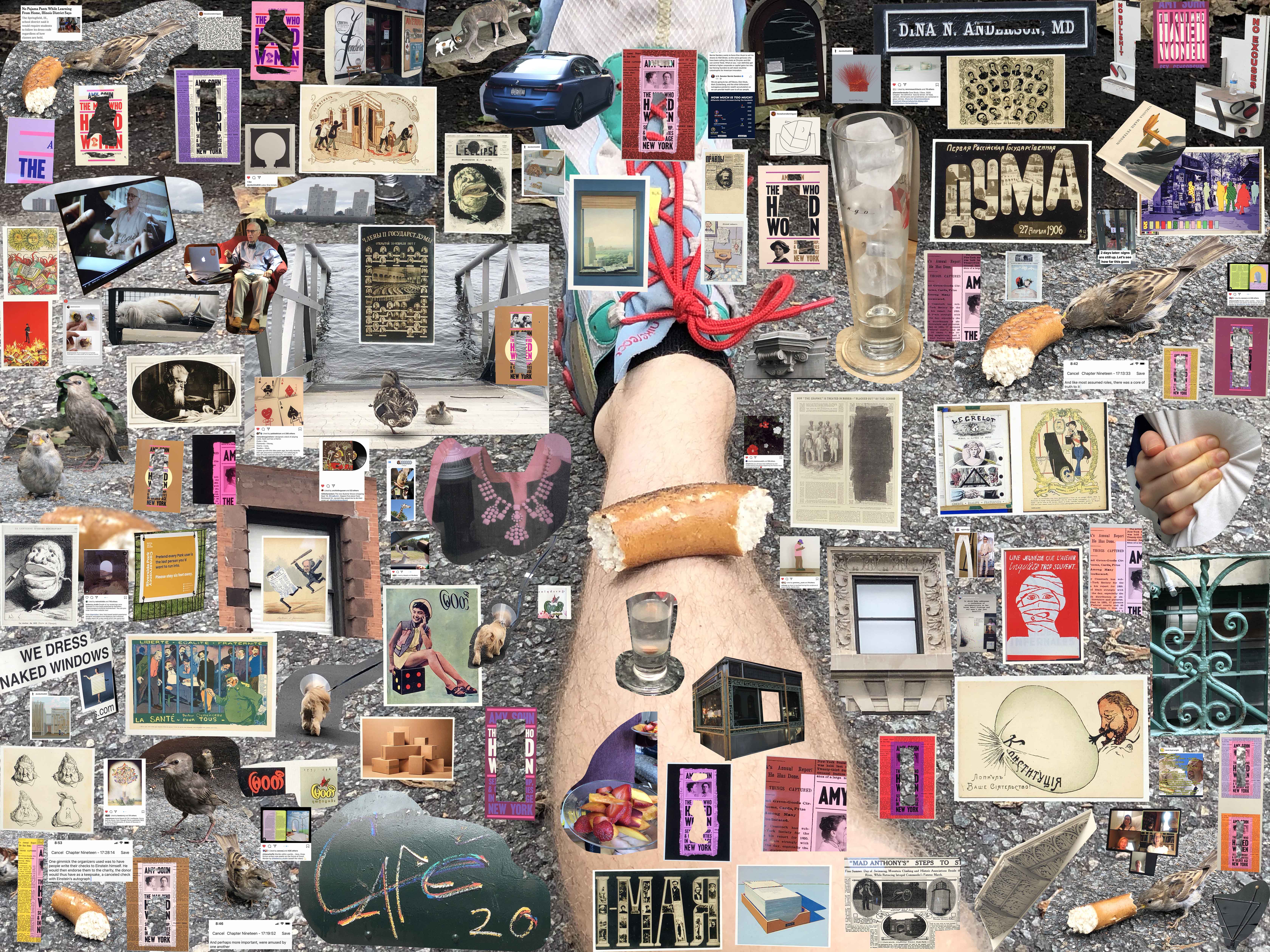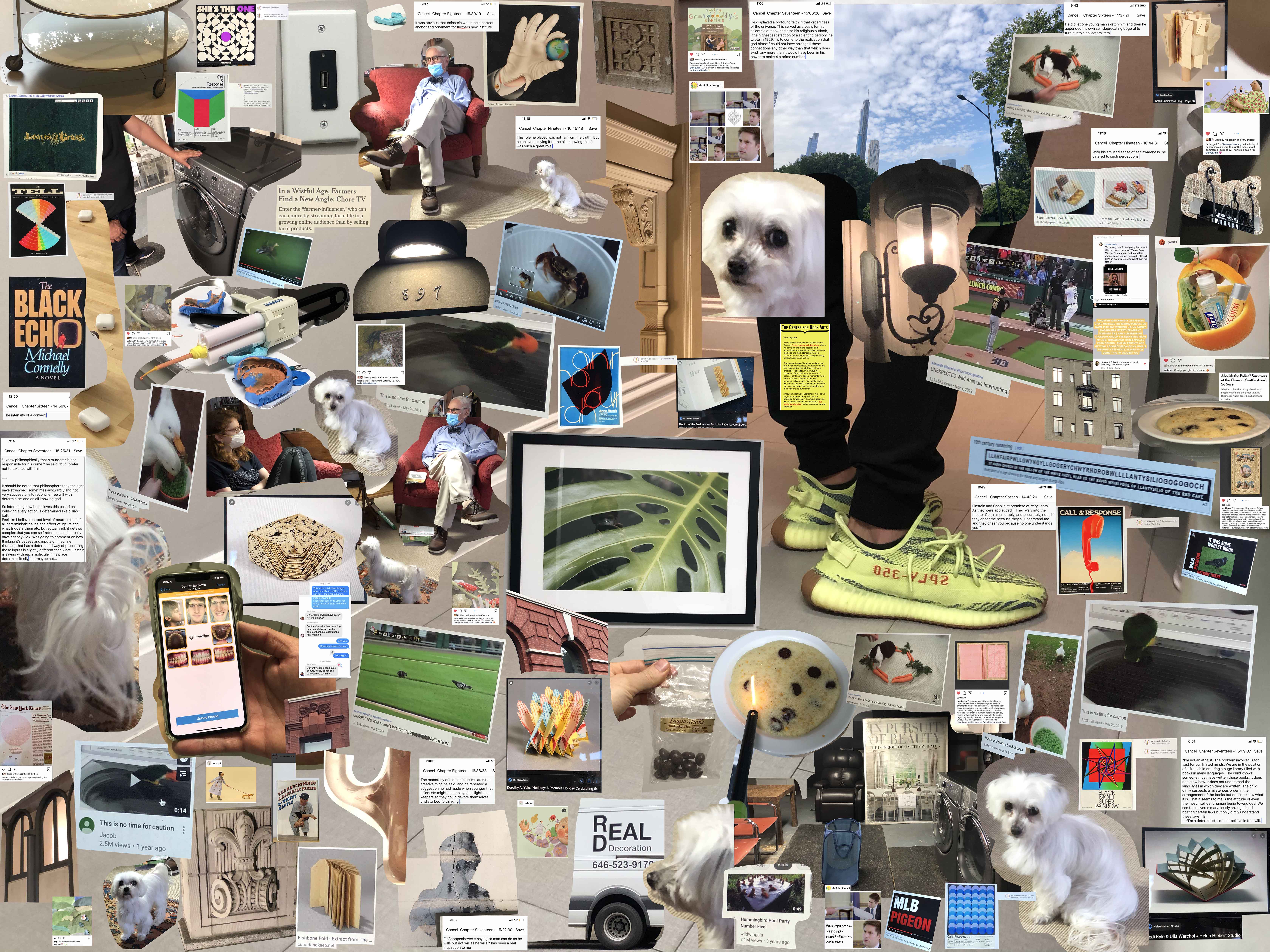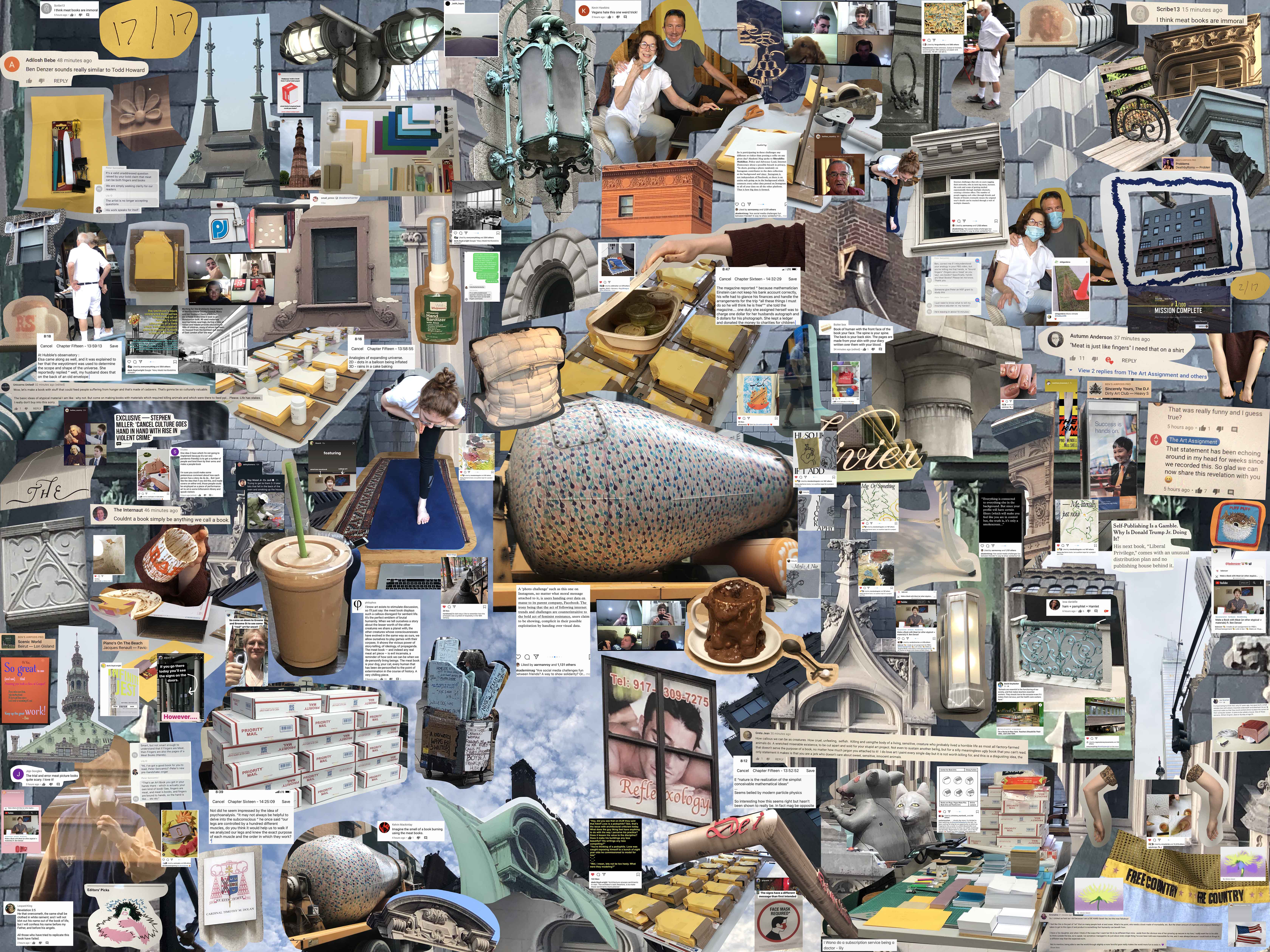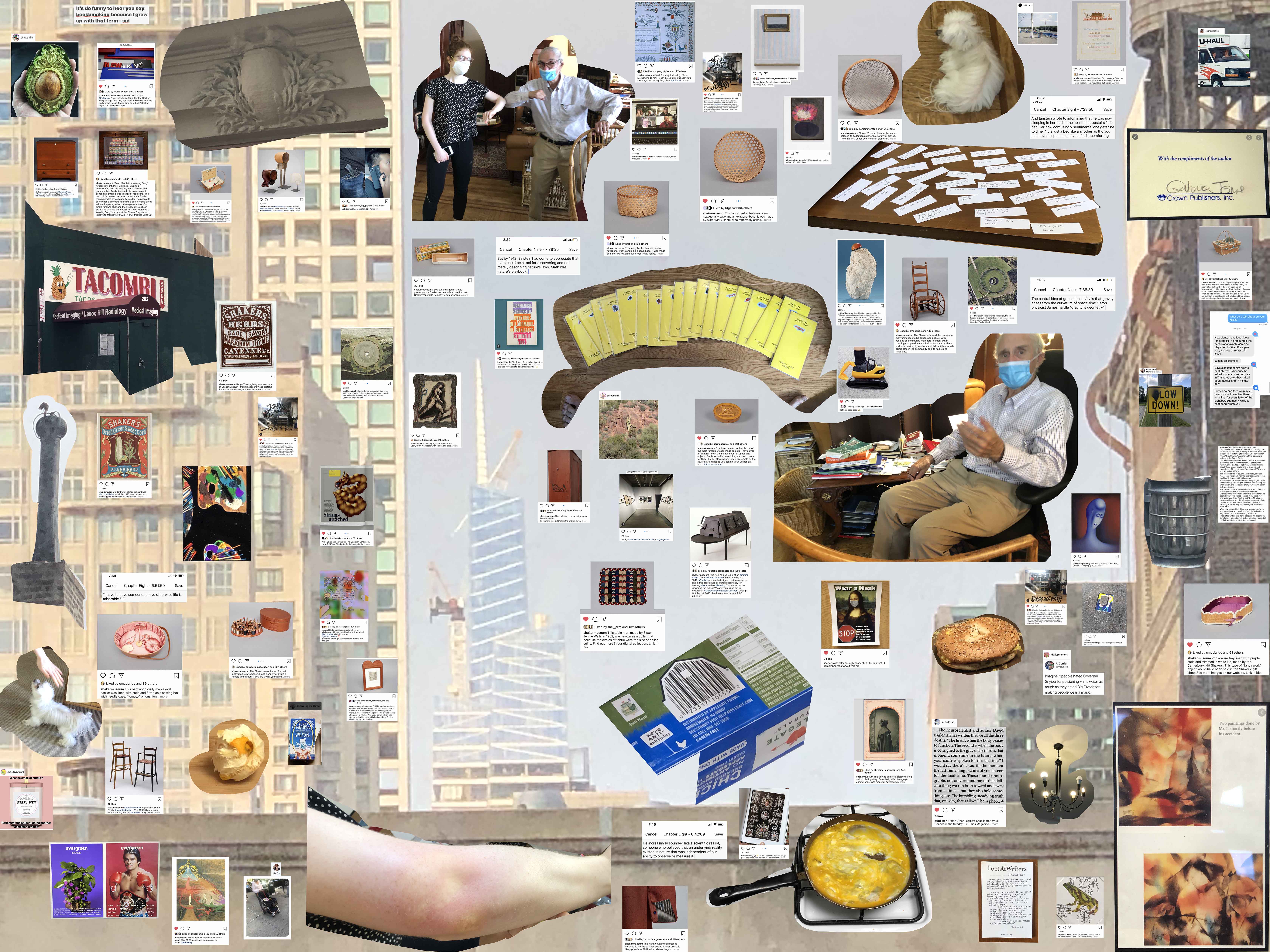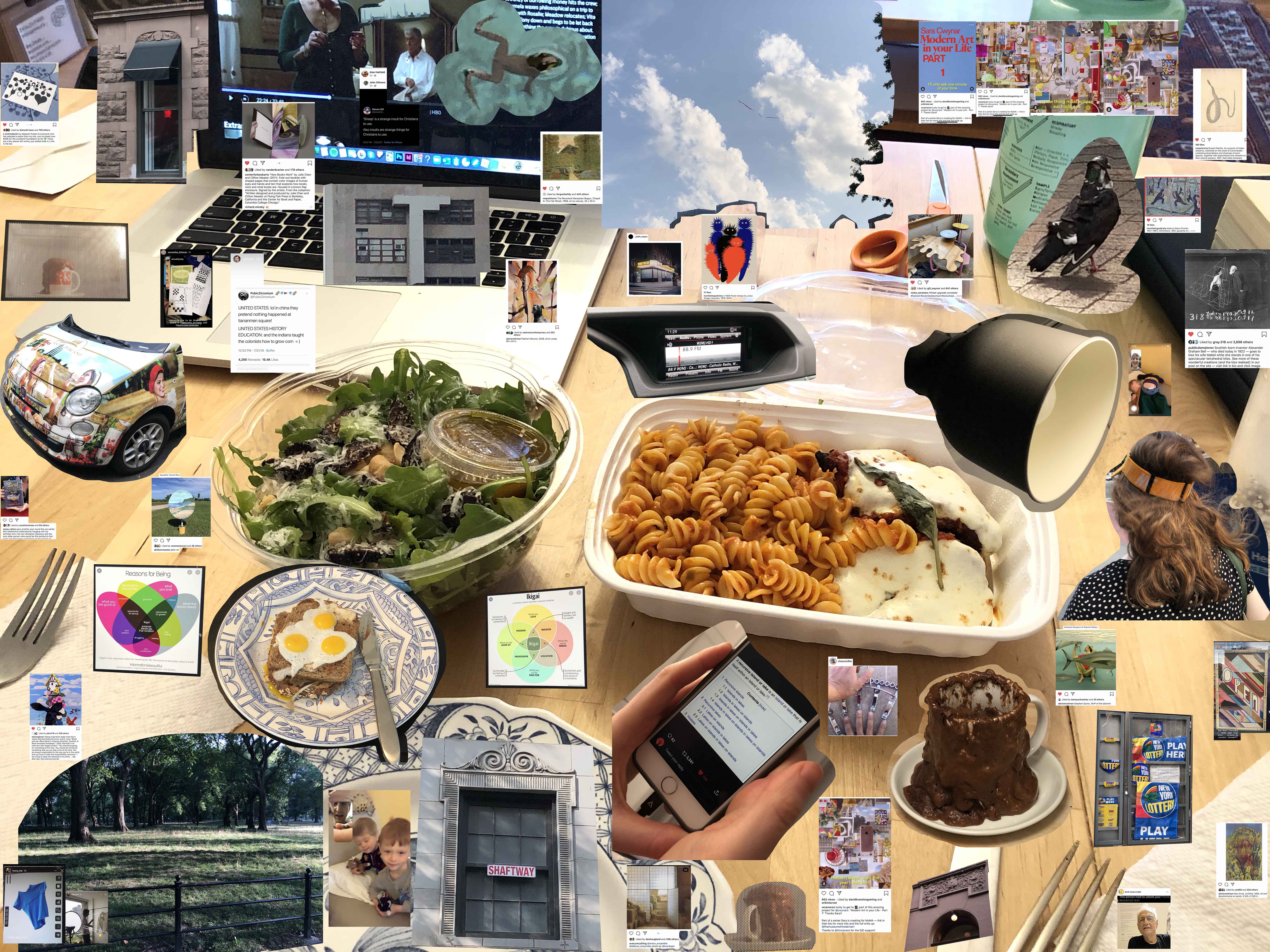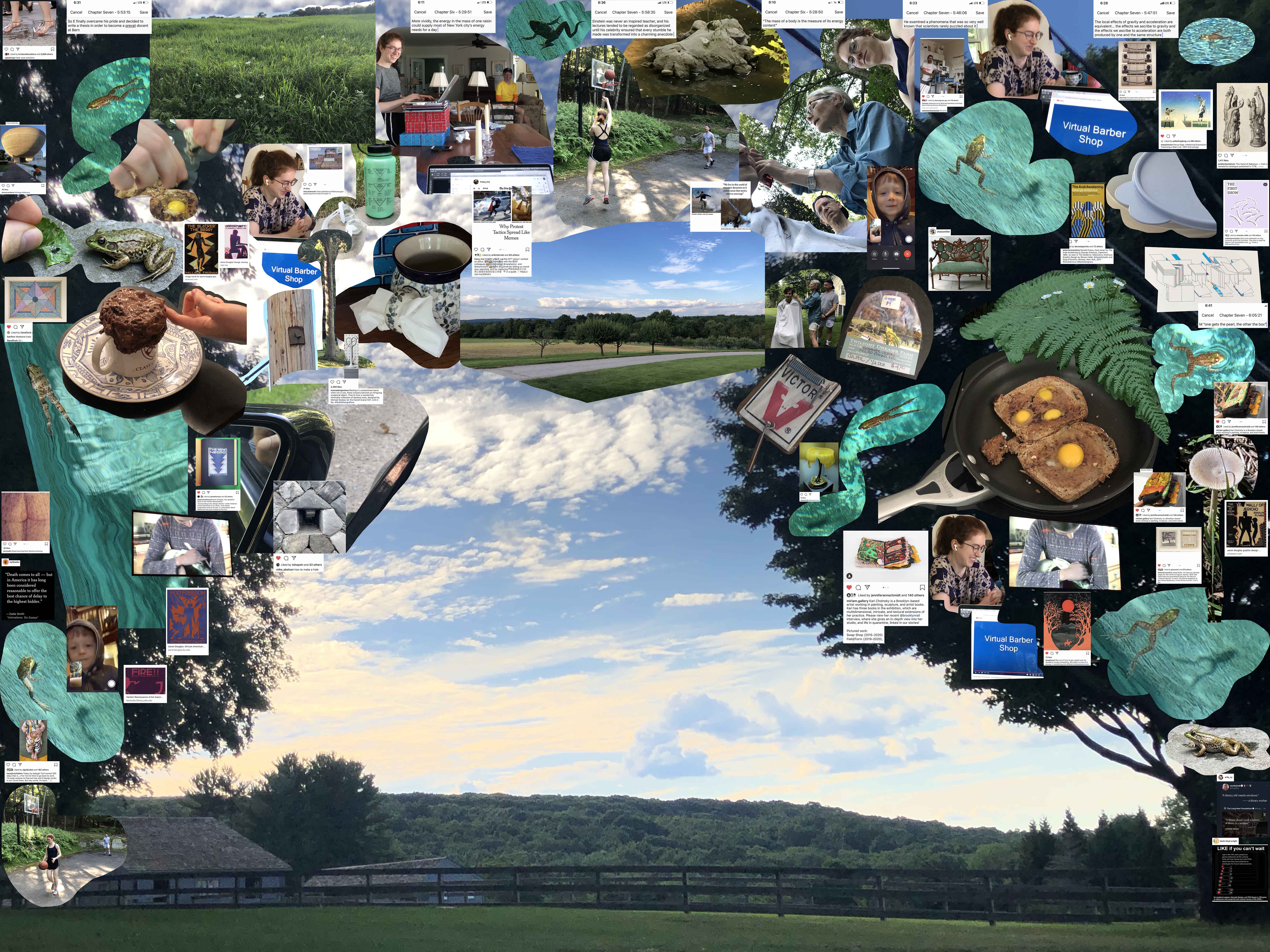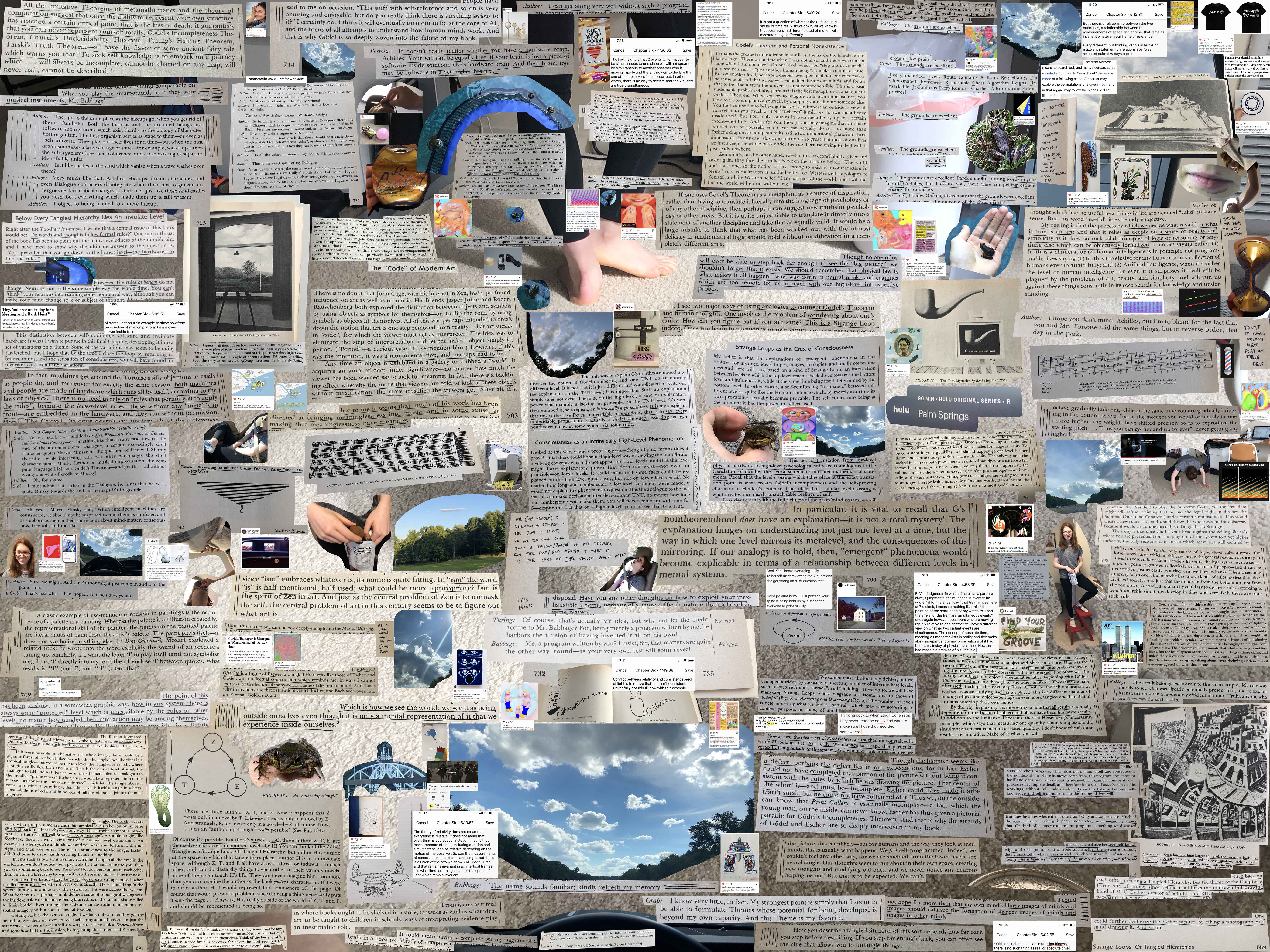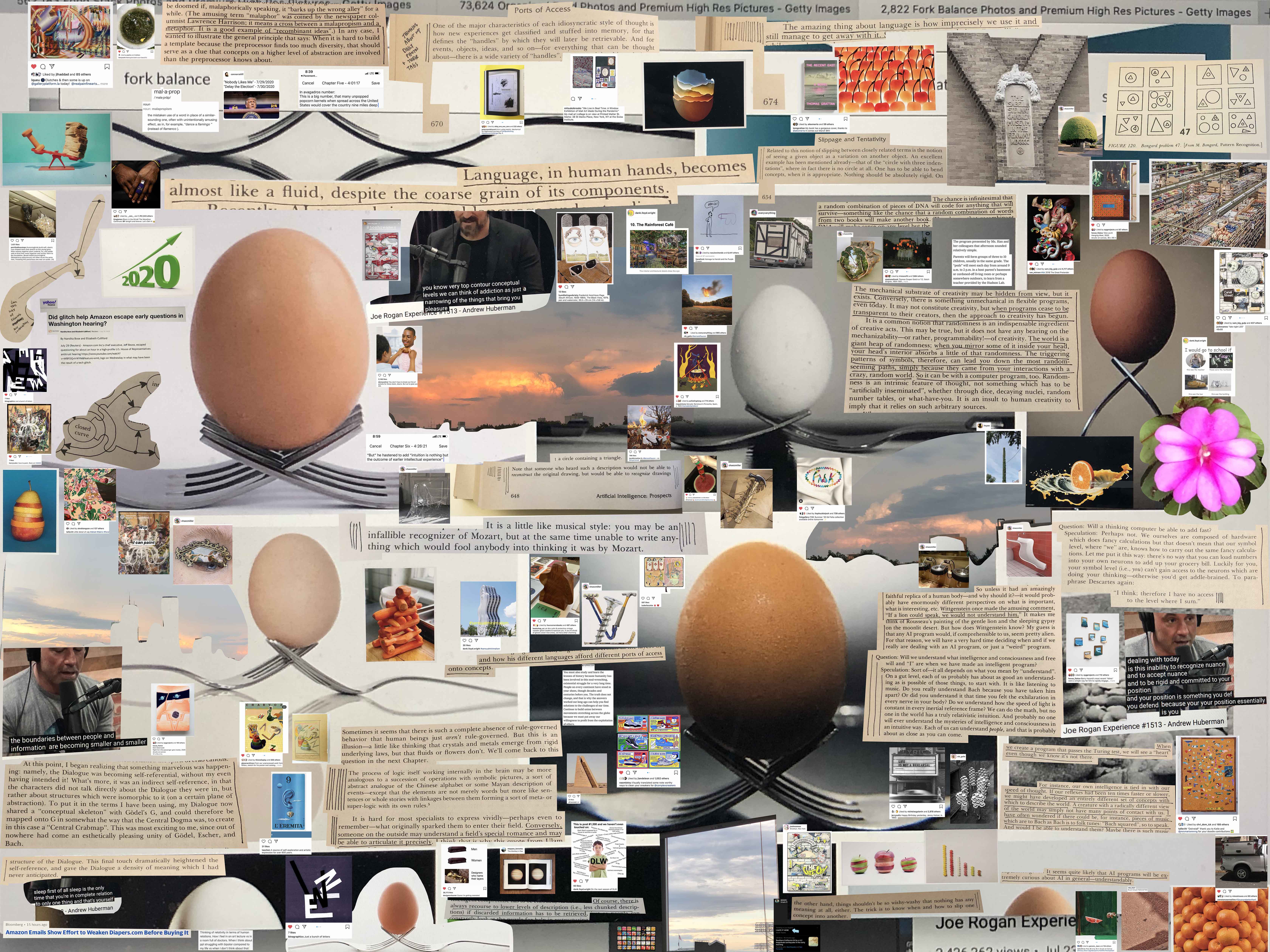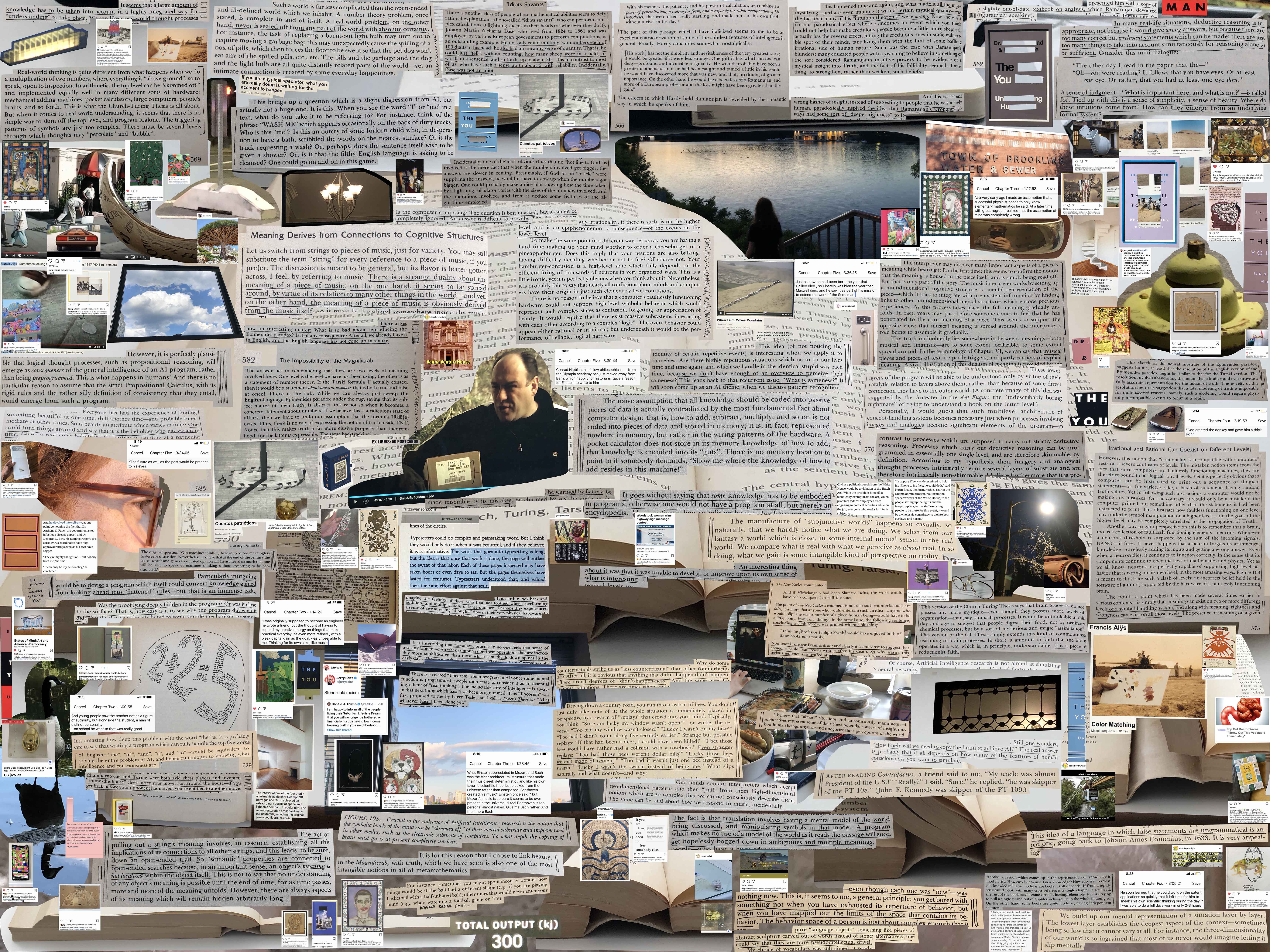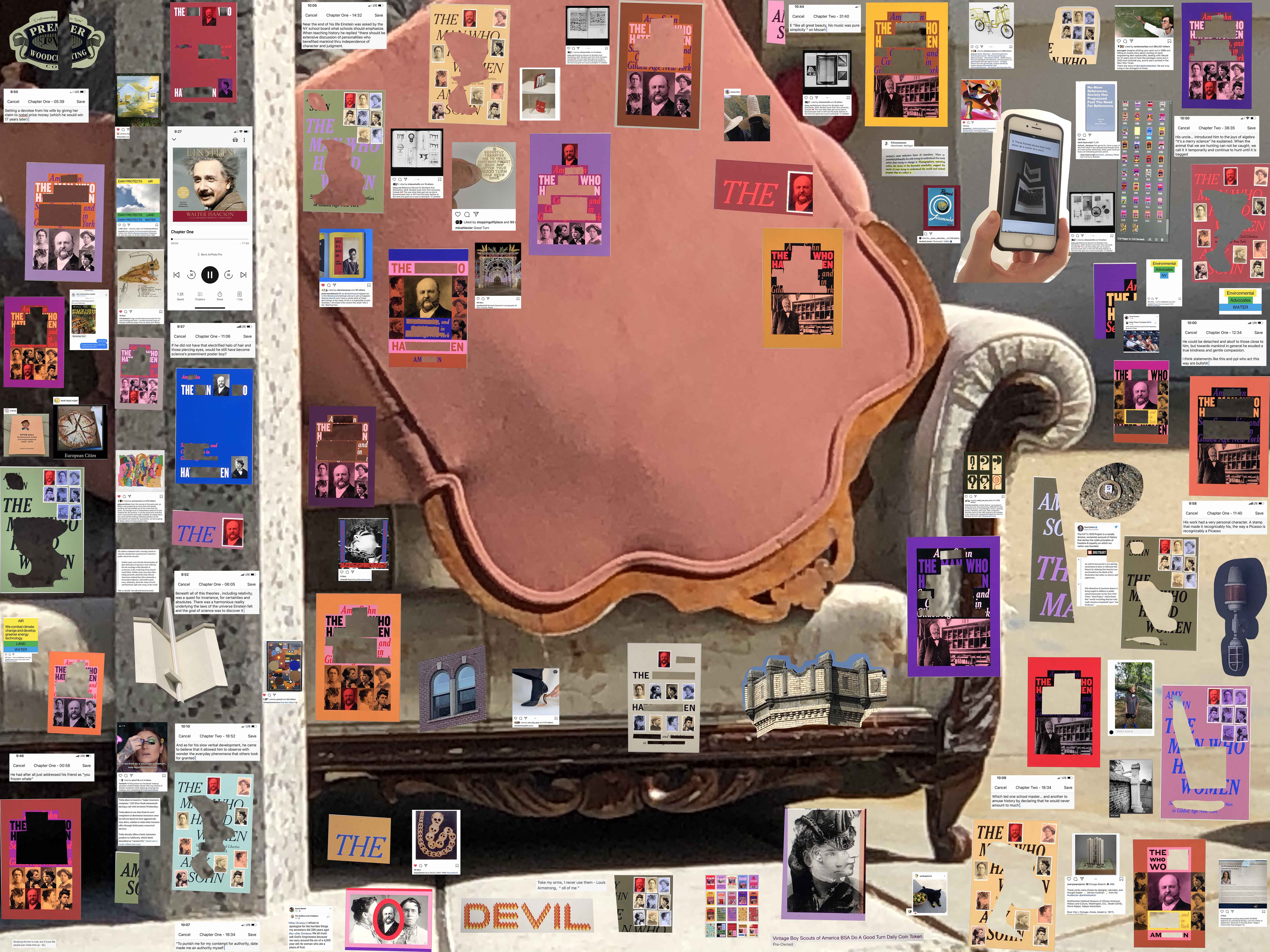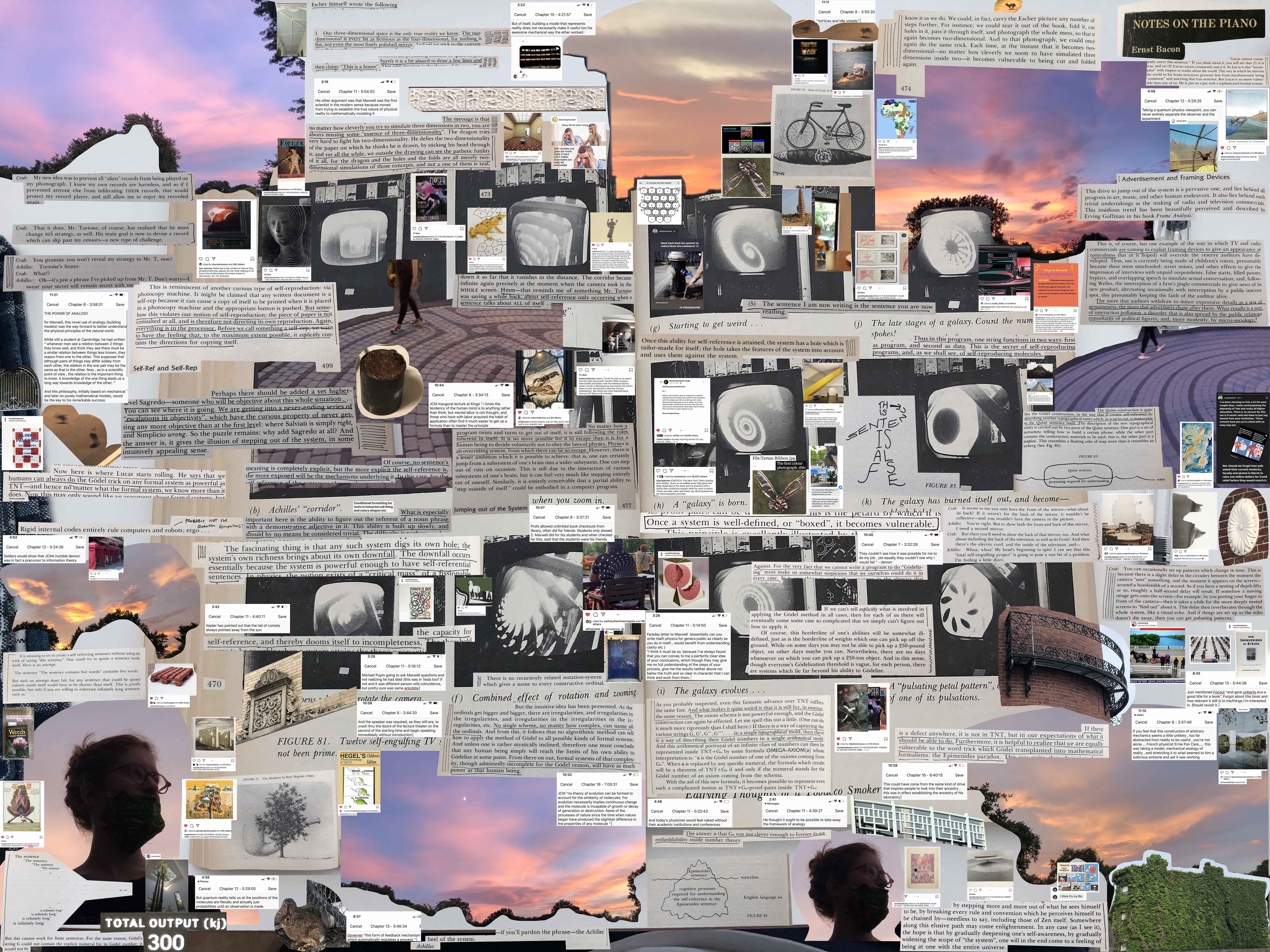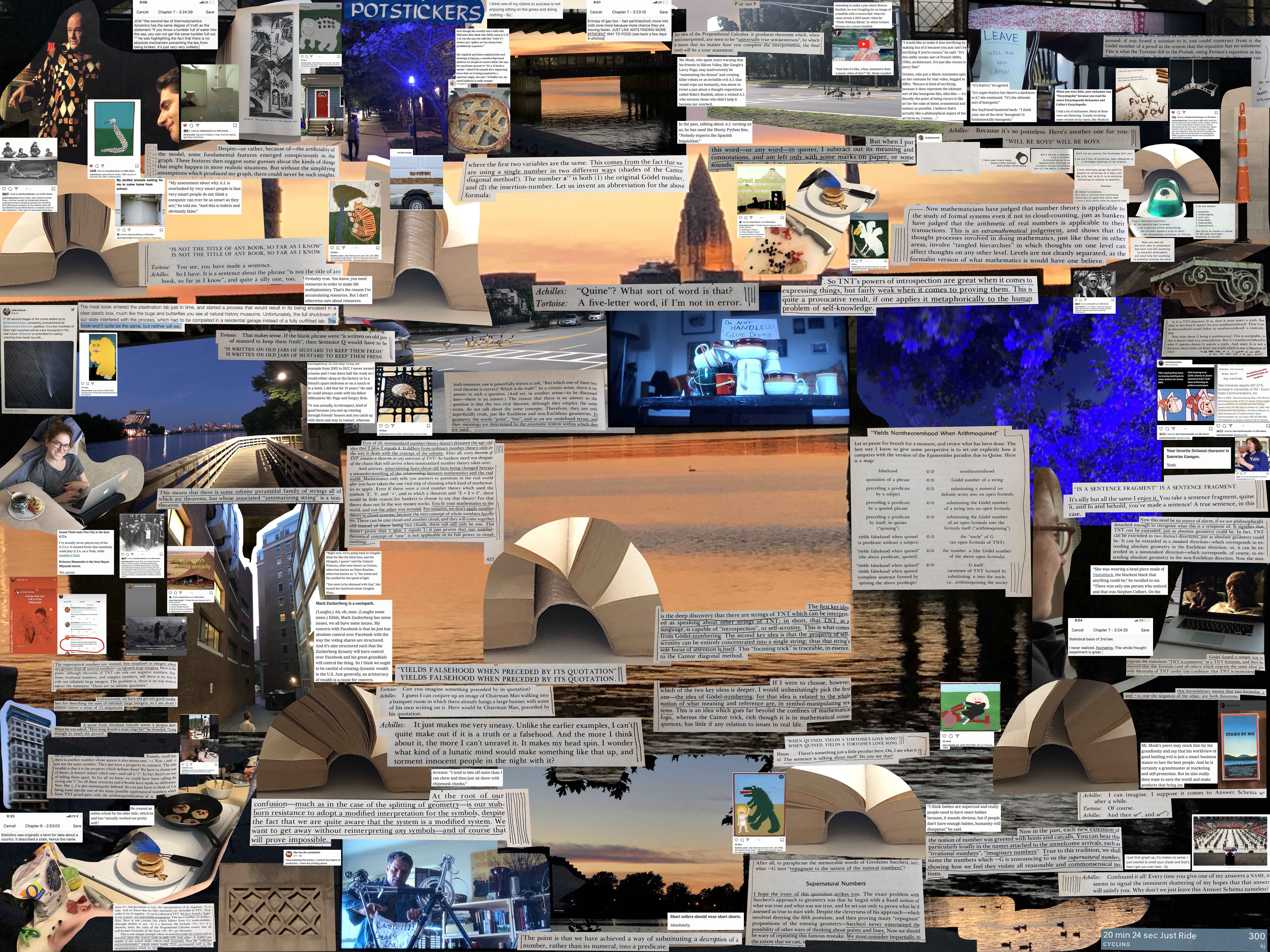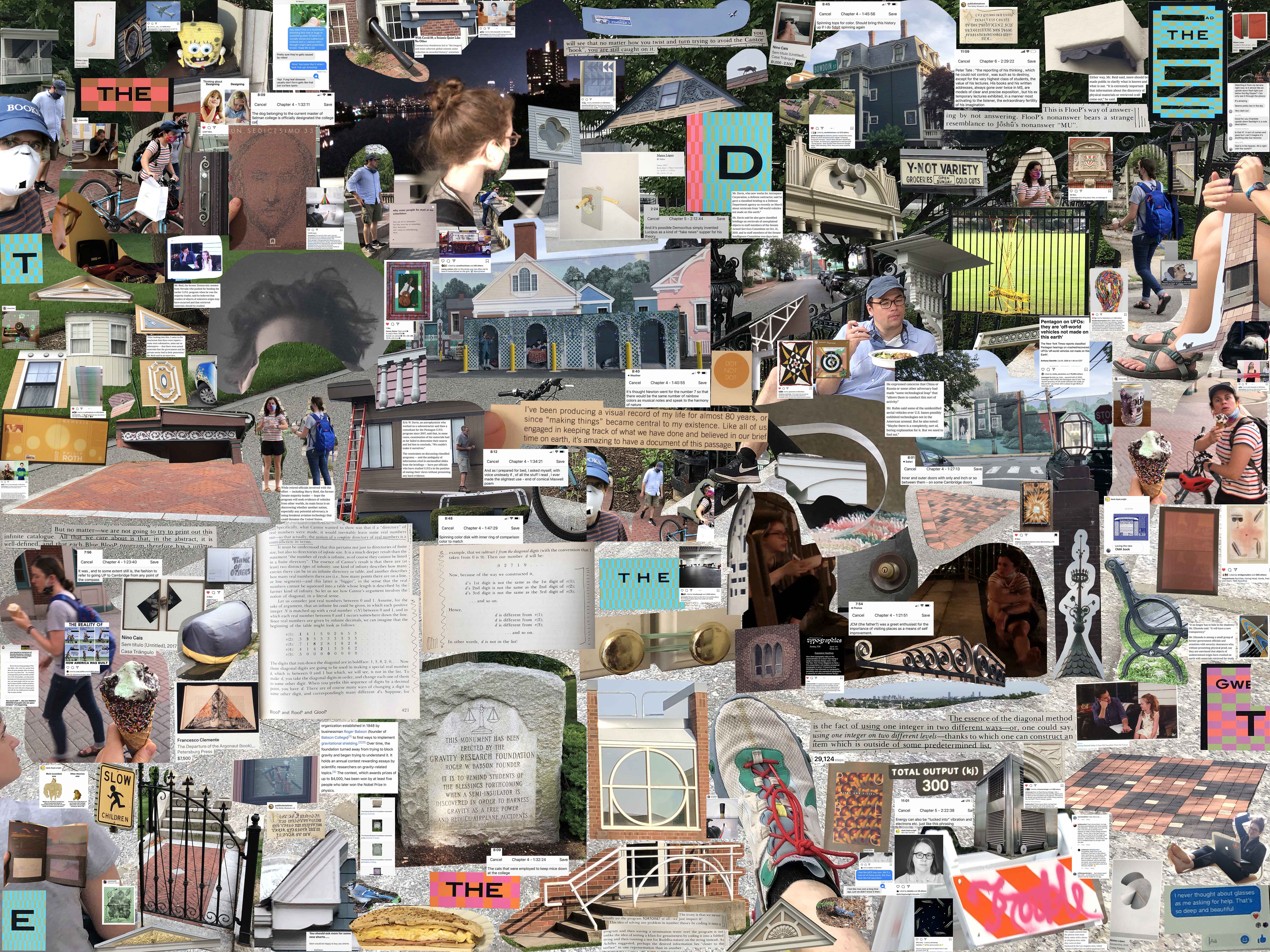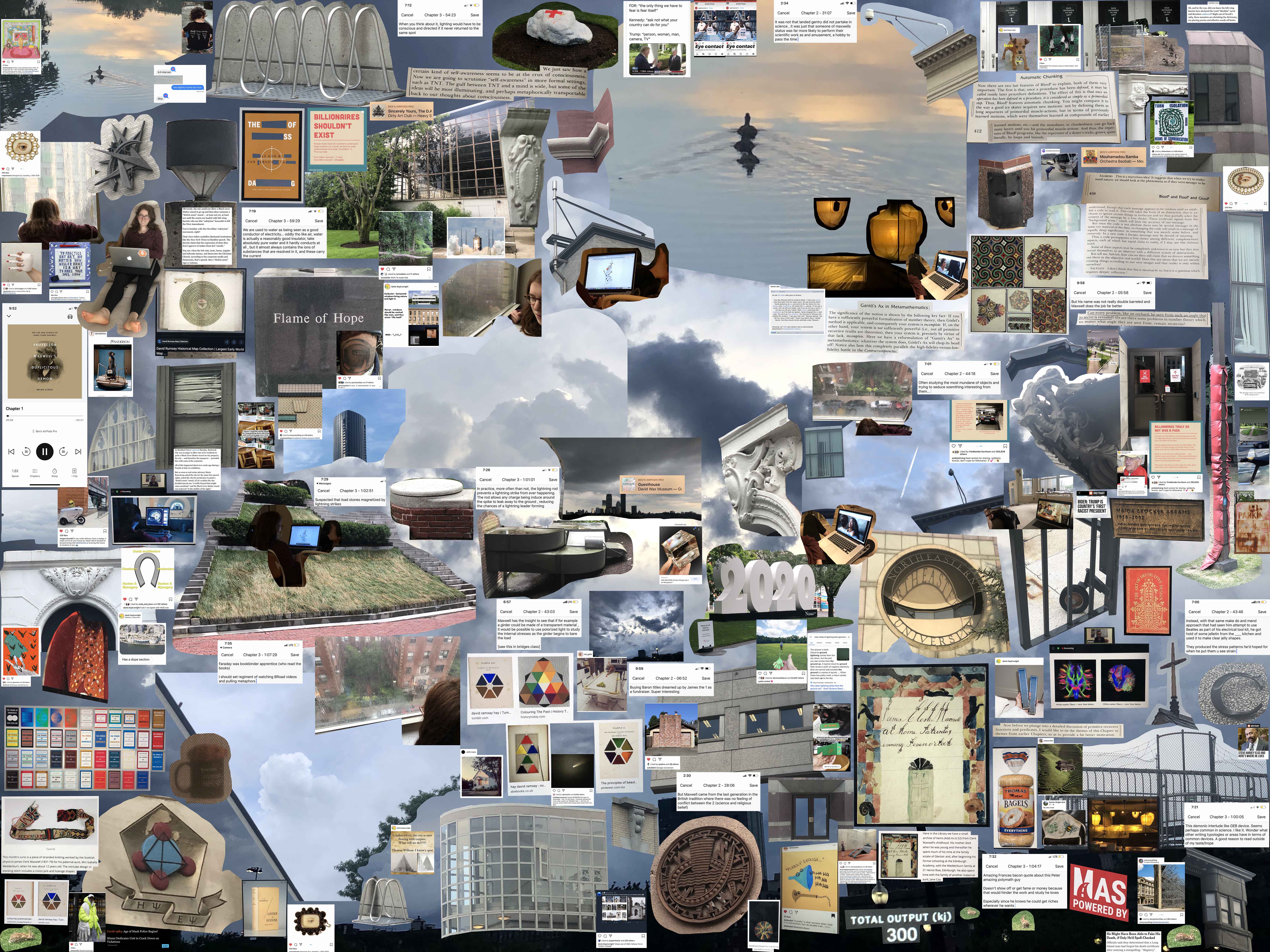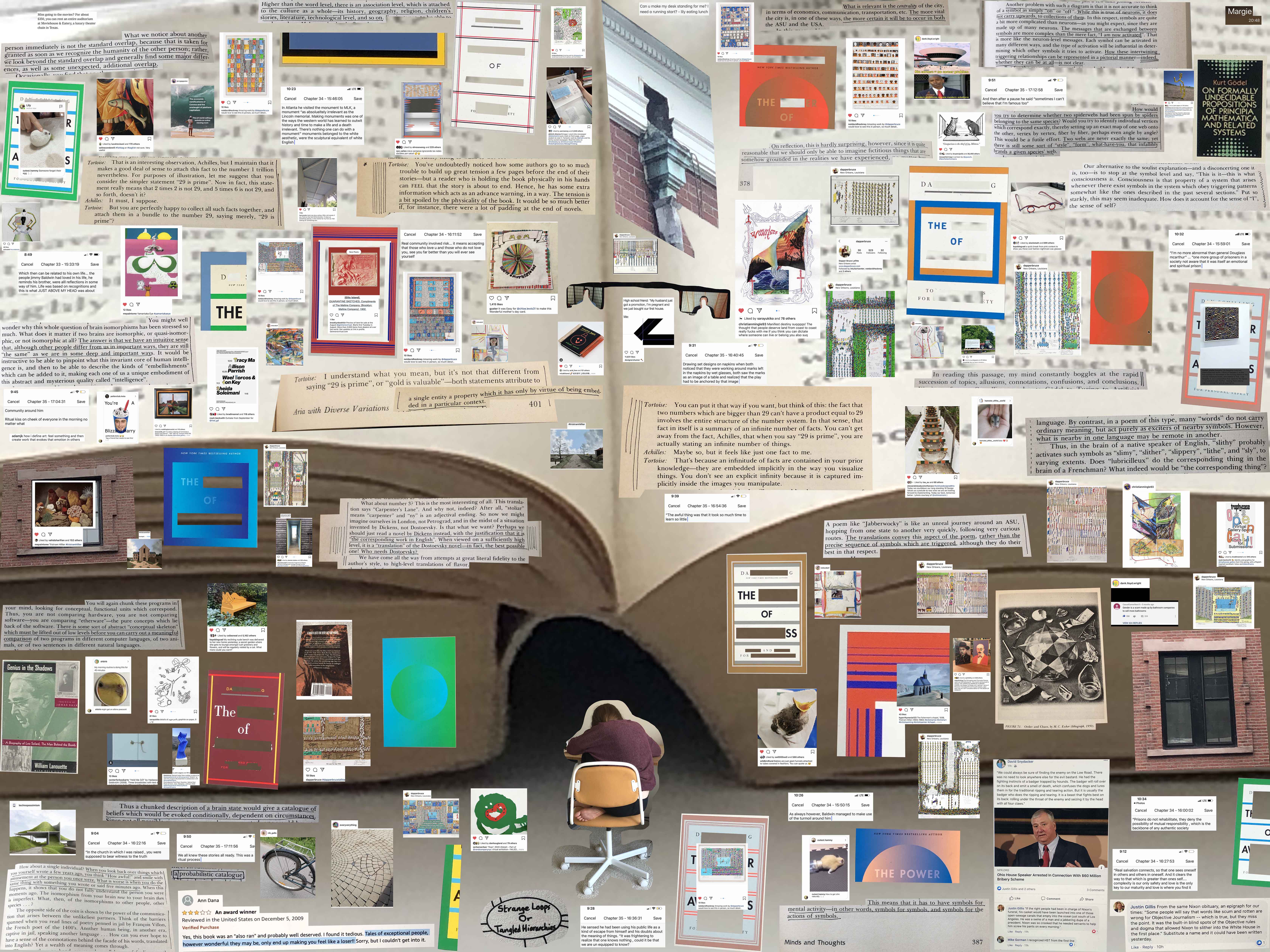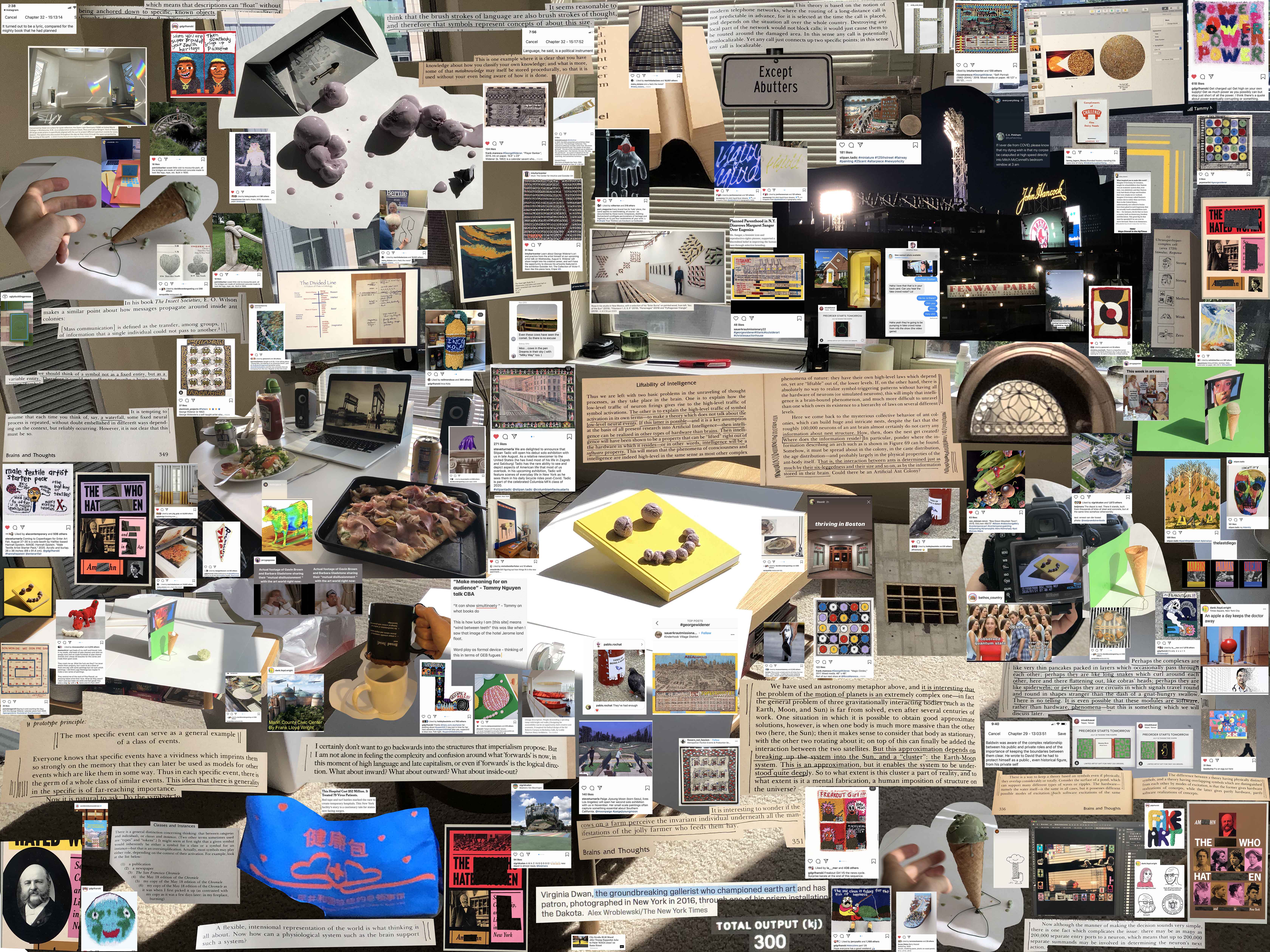Sunday, August 9, 2020
I was surprised at the gesture, hokey or not, at the mass participation in it. Most of all, I was surprised at my response to it; I felt genuinely welcomed.
— Audre Lorde, "Notes from a Trip to Russia," Sister Outsider
Saturday, August 8, 2020
Liked each other, understood each other, and perhaps more important (for she, too, was actualy quite clever in her own way) were amused by each other.
— Walter Isaacson, Einstein
Friday, August 7, 2020
Currently eating hen house donuts, turkey bacon and straberries cut in half.
— David in a text to "Ben's Basement"
Thursday, August 6, 2020
Wow, let's make a book with stuff that could feed people suffering from hunger and that's made of cadavers. That's gonna be so culturally valuable.
The basic ideas of atypical material I am like : why not. But come on making books with materials which required killing animals and which were there to feed ppl... Please. Life has stakes.
I really don't buy into this sorry.
— Unicorns United!, YouTube comment on "Make a Book with Meat (or other atypical materials) ft. Ben Denzer," The Art Assignment
Wednesday, August 5, 2020
One reason that Einstein... became such an icon was because he looked the part and because he could, and would, play the role.
— Walter Isaacson, Einstein
Tuesday, August 4, 2020
Years later, when his younger son, Eduard, asked why he was so famous, Einstein replied by using a simple image to describe his great insight that gravity was the curving of the fabric of spacetime. "When a blind beetle crawls over the surface of a curved branch, it doesn't notice that the track it has covered is indeed curved," he said. "I was lucky enough to notice what the beetle didn't notice."
— Walter Isaacson, Einstein
Monday, August 3, 2020
It's so funny to hear you say "bookmaking" because I grew up with that term.
— Sid
Sunday, August 2, 2020
Herbert Bayer, died the year I was born.
— Sara Cwynar, "Modern Art in your Life Part 1," MoMA
Saturday, August 1, 2020
His lectures tended to be regarded as disorganized until his celebrity ensured that every stumble he made was transformed into a charming anecdote.
— Walter Isaacson, Einstein
Friday, July 31, 2020
By the way, in passing, it is interesting to note that all results essentially dependent on the fusion of subject and object have been limitative results.
— Douglas Hofstadter, Gödel, Escher, Bach
Thursday, July 30, 2020
The amazing thing about language is how imprecisely we use it and still manage to get away with it.
— Douglas Hofstadter, Gödel, Escher, Bach
Wednesday, July 29, 2020
"At a very early age, I made an assumption that a successful physicist only needs to know elementary mathematics," he said. "At a later time, with great regret, I realized that the assumption of mine was completely wrong"
— Walter Isaacson, Einstein
Tuesday, July 28, 2020
Even if a brain is, in a technical and abstract sense, some sort of formal system, it remains true that mathematicians only work with simple and elegant systems, systems in which everythign is extremely cearly defined—and the brain is a far cry from that, with its ten billion or more semi-independent neurons, quasi-randomly connected up to each other. So mathematicians would never study a real brain's networks. And if you define "mathematics" as what mathematicians enjoy doing, then the properties of brains are not mathematical.
— Douglas Hofstadter, Gödel, Escher, Bach
Monday, July 27, 2020
A stamp that made it recognizably his, the way a Picasso is recognizably a Picasso.
— Walter Isaacson, Einstein
Sunday, July 26, 2020
For, Maxwell, this novel use of analogy - building models - was the way forward to better understand the physical principles of the natural world. While still a student at Cambridge, he had written: "Whenever [men] see a relation between two things they know well, and think they see there must be a similar relation between things less known, they reason from one to the other. This supposes that, although pairs of things may differ wildly from each other, the realtion in the one pair may be the same as that in the other."
— Brian Clegg, Professor Maxwell's Duplicitous Demon: The Life and Science of James Clerk Maxwell
Saturday, July 25, 2020
"YIELDS FALSEHOOD WHEN PRECEDED BY ITS QUOTATION"
YIELDS FALSEHOOD WHEN PRECEDED BY ITS QUOTATION.
— Douglas Hofstadter, Gödel, Escher, Bach
Friday, July 24, 2020
You should ask mom for some new shorts... Mom would be happy to buy you shorts.
— Kathleen
Thursday, July 23, 2020
Human brains have not evolved to understand large numbers. As a result, we tend to vastly underestimate how large "one billion" is. This may help:
One million seconds = 11 days
One billion seconds = 32 years
— @emilyisliving, "Billionaires Shouldn't Exist"
Wednesday, July 22, 2020
Tortoise: You've undoubtedly noticed how some authors go to so much trouble to build up great tension a few pages before the end of their stories—but a reader who is holding the book in his hands can FEEL that the story is about to end. Hence, he has some extra information which acts as an advanced warning, in a way. The tension is a bit spoiled by the physicality of the book. It would be so much better if, for instance, there were a lot of padding at the end of novels.
— Douglas Hofstadter, Gödel, Escher, Bach
Tuesday, July 21, 2020
Where does the information reside?... Somehow, it must be spread about in the colony, in the caste distribution, the age distribution—and probably largely in the physical properties of the ant-body itself. That is, the interaction between ants is determined just as much by their six-leggedness and their size and so on, as by the information stored in their brain.
— Douglas Hofstadter, Gödel, Escher, Bach
